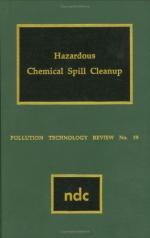|
This section contains 4,620 words (approx. 16 pages at 300 words per page) |

|
As long as there are chemical plants and oil facilities, there will be spills. The best prevention plans, technology, training, expertise, science, regulations, laws, and human concern can, at best, minimize spills. But once they do happen, the best hope at preventing outright disaster is rapid, intelligent response and prompt, professional cleanup. Some of this is done in advance with emergency response and cleanup plans required by national and local agencies. Systematic tracking of cleanup events builds experience and knowledge. Training and money are crucial. Supervision and leadership play a huge role, and science points the way for reducing harm.
In the United States, those responsible for oil and chemical spills must report incidents immediately to the Coast Guard's National Response Center, which mobilizes a half dozen federal agencies for immediate reaction. The EPA plays the leading role in responding to spills. It can...
|
This section contains 4,620 words (approx. 16 pages at 300 words per page) |

|




